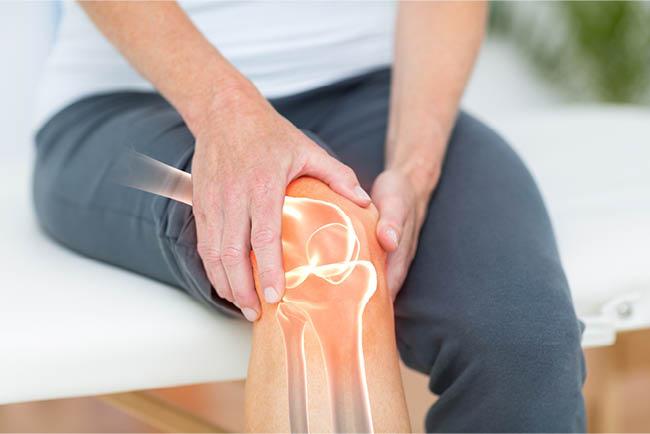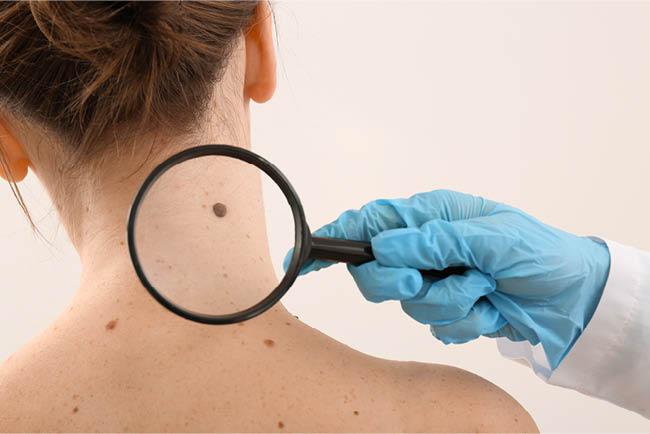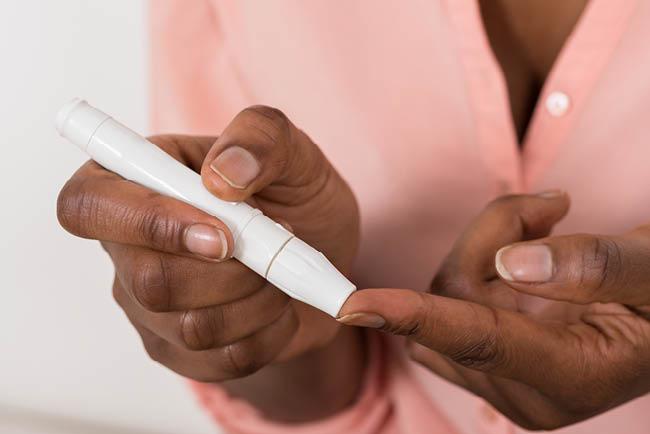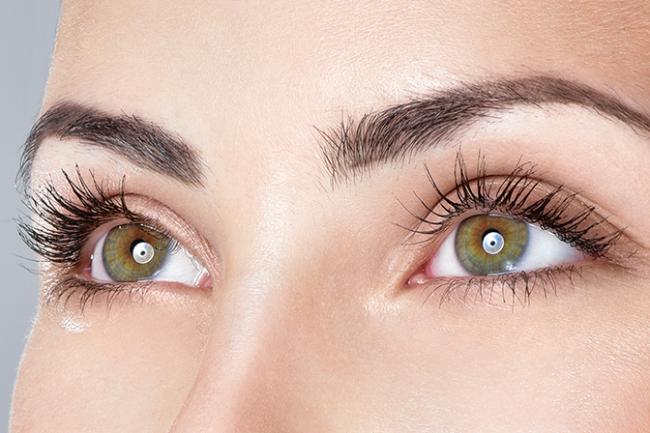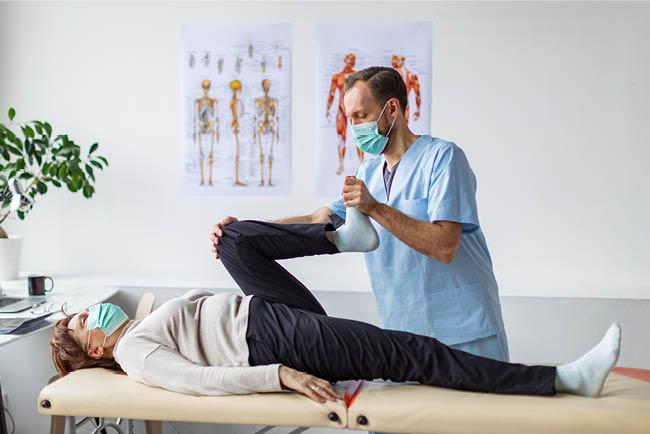Search Studies
Research studies are looking for volunteers just like you. Both healthy volunteers and participants with specific health conditions are needed to help answer important questions impacting the health of our friends and family. Join us to improve the health of others.
-
Breathing Training Program for Breast Cancer Survivors with Obesity
Official Title Reducing exercise intolerance through inspiratory muscle training in obese breast cancer survivors (IMOCS)Purpose
The purpose of this study is to better understand why some survivors of breast cancer have difficulty exercising. We also want to learn if breathing exercises can make it easier to tolerate exercise.
Could this study be right for you?
- Breast Cancer Survivor
- Completed treatment within 6 months–5 years
- Have obesity, defined as body mass index between 30-50 kg/m2
- Can exercise independently
Age Range
18 years and up -
The Tree of Hope: A Method to Reduce Burnout, Improved Hope and Increase Resilience
Official Title The Tree of Hope: A Method to Reduce Burnout, Improved Hope and Increase ResiliencePurpose
The purpose of this study is to improve the sense of hope and build resilience through creating one’s Tree of Hope. This study is being done because we see that today’s environment is quite stressful and this can lead to people feeling less hopeful in their present and the future.
Could this study be right for you?
- At least 18 years old
- Able to read and understand English
- Healthy people and patients will be eligible for this research study
- Participants will be eligible even if they are not seen at OSU for their care.
- We will not abstract any data from electronic health records. Patients will complete a survey that asks them questions about their health conditions
Exclusion Criteria
- Any physical or mental condition that the principal investigator considers as impacting the ability of the patient to participate in the research study. Examples include visual or hearing impairment, arthritis, weakness or other medical problem that impairs their ability to write.
Age Range
18 years and up -
A Study for Active Military Service Members (or recently served); Examining Uncertainty, Health, and Home Safety Practices
Official Title Uncertainty and Firearms: Obtaining Secure Storage (UFOS)Purpose
The purpose of this study is to examine whether fear of uncertainty plays a role in home safety practices among firearm owners who are currently or have recently served in the U.S. military.
Could this study be right for you?
- Currently serving in any Branch or Component of the U.S. military, or were discharged from the U.S. military within the past 90 days
- 18 years or older
- Own at least one firearm located in your home or vehicle
- Are able to speak and understand the English language
- Have an Apple or Android smartphone
Age Range
18 - 99 years -
Assessing Non-invasive Spinal Stimulation to Evaluate its Safety and Effectiveness in Individuals with Spinal Cord Injury
Official Title ExaStim Upper Limb Pivotal Clinical Validation StudyPurpose
The purpose of this study is to evaluate the safety and effectiveness of ExaStim® transcutaneous spinal stimulation on upper extremity function when applied in combination with physical therapy (PT) and/or occupational therapy (OT).
Participants will be randomized to the stimulation group or a control group. Outcomes will include sensory, motor, and functional tests, as well as questionnaires.
Could this study be right for you?
- Aged 22 years or older
- Traumatic chronic spinal cord injury
- Level of injury between C2-T2
- No active implanted medical device for electrical stimulation
- No Botox for 3 months
- Have a chronic, traumatic SCI (chronic is >12 months since injury, or 6 months if unchanged symptoms)
- Has some, but limited upper extremity function
- BMI <40
- Cannot be pregnant
Age Range
22 years and up -
A study assessing the impact of a treatment on anxiety and stress in individuals with memory concerns.
Official Title Treatment of Stress and Anxiety in mild cognitive impairment (MCI)/Mild Alzheimer's Disease and related dementias (ADRD) and their care partners: A Randomized Controlled TrialPurpose
The purpose of this study is to assess the impact of a treatment on anxiety and stress in individuals with memory concerns and those already with a diagnosis of Mild Cognitive Impairment (MCI), Mild Alzheimer's Disease and related dementias.
Could this study be right for you?
The primary participant must:
- Be at least 60 years of age
- Have a “care-partner” that is willing to participate in the full program (such as a spouse, child or a good friend)
- NOT have a terminal illness or severe motor impairment
- Be able to use a computer and smartphone and read English at the 6th grade level
The care partner must:
- Be at least 18 years of age
- Be able to use a computer and smartphone and read English at the 6th grade level
Age Range
60 - 99 years -
A Study about Bordetella Pertussis (Whooping Cough)
Official Title Identification of novel immunogenic proteins from Bordetella pertussisPurpose
The purpose of this study is to identify new targets to include in a next generation for pertussis (whooping cough). Our goal is to identify new antigens that generate better immune responses against Bordetella pertussis.
You will be in the study for one day when you provide the blood sample.
Could this study be right for you?
- 25-40 years old and do not have diabetes, heart disease, hypertension, auto-immune disease
- Not taking any steroid medications
- Not pregnant
- Know your immunization history
- One time visit
- Healthy Volunteer
Age Range
25 - 40 years -
A Study about Short-term and Long-term Impact of COVID-19 on Multiple Sensory Systems
Official Title Short-term and long-term impact of COVID-19 on multiple sensory systemsPurpose
The purpose of this study is to assess the short-term and long-term impact of COVID-19 on multiple sensory systems, including smell, taste, hearing, and balance.
The study requires about 2.5 hours of your time for your first visit, during which you may undergo smell, taste, hearing, motion, and balance tests. You may be require to participate several follow-up visits, each last 1.5 hours, if you continue to experience symptoms.
Could this study be right for you?
- Adults diagnosed with COVID 19 within the past 1-8 weeks
- Adults with previous COVID-19 diagnosis and has persistent (>90 days) complaints of sensory dysfunctions (smell, taste, chemesthesis, hearing, balance, dizziness)
- Adult with a recent (<8 weeks) upper respiratory infection (cold, flu, etc.)
- Adult with a previous upper respiratory infection (cold, flu, etc.) and has complaints of sensory dysfunctions (smell, taste, hearing, balance, dizziness)
Age Range
18 - 99 years -
A Study about Retirement from Contact Sports after Concussion
Official Title Retirement from contact sports after concussionPurpose
The purpose of this study is to learn about the experiences of children and young adults after they stop playing contact sports due to concussion.
Could this study be right for you?
- Male and females aged 14-22 years old
- Retired from contact sports due to prior concussion
Additionally, a parent may participate if their child enrolls.
Age Range
14 - 22 years -
Buckeye Concussion Knowledge Survey (BUCKS)
Official Title BUckeye Concussion Knowledge Survey (BUCKS)Purpose
The purpose of this study is to examine health outcomes in former Ohio State University athletes who played a varsity sport during their time at OSU. The objective is to determine whether athletes who sustained a concussion have different health outcomes than those who did not sustain a concussion. Any former OSU varsity athlete can participate in a 20-minute online survey.
Could this study be right for you?
- Anyone who has played a varsity sport as an undergraduate student at OSU, and they have now graduated (i.e., OSU athlete alumni). There are no other restrictions in terms of age, sex/gender, type of sport, etc.
Age Range
18 years and up -
Treatment of Chronic Hepatitis C Virus During Pregnancy
Official Title Safety, Tolerability, and Outcomes of Velpatasvir/SofosbuviR in Treatment of Chronic Hepatitis C Virus during Pregnancy (STORC), pregnant womanPurpose
This study involves evaluating a medication for hepatitis C in pregnant women.
If you are a pregnant woman with chronic hepatitis C and you join the study, you are consenting to enroll yourself and your baby after he/she is born.
Maternal participants will have 7 visits over approximately 7 months. Infant participants have four visits over approximately the first year of life.
Could this study be right for you?
(This is not a complete list)
- Must be 18 - 45 years of age
- Chronic HCV infection of at least 6 months
- Singleton pregnancy at 20 + 0 to 30 + 0 weeks’ gestation
- Documented negative Hepatitis B testing for current infection (negative HBsAg test) prior to enrollment
- If living with HIV, must be on antiretroviral therapy
Exclusion Criteria (not a complete list)
- Plans to relocate away from the study site area in the next 16 months and unable/unwilling to return for study visits
- History of cirrhosis
- Known fetal chromosomal abnormality prior to enrollment
Age Range
18 - 45 -
A Study to Learn More about Cellphone Use in Young Drivers
Official Title Randomized Trial on Mobile Technology and Young Drivers' Cellphone UsePurpose
The purpose of this study is to find out if a cell phone app affects driving behavior among young drivers. This information may help us develop public health and traffic safety strategies for young drivers.
Could this study be right for you?
- 18-24 years old at the time of recruitment
- Must have ownership and exclusive access to a car
- Must have car insurance with at least state-minimum coverage
- Must live in the Greater Columbus Metropolitan Area
- Must drive at least 2 days a week on average
- Must have a functioning iPhone or Android smartphone with an active phone service account (Ex: Verizon, AT&T, etc.)
- Must not have a physical car insurance monitoring device or app installed
- Must speak and read English
Age Range
18 - 24 -
Ohio Teen Driver Study
Official Title Leveraging DRVN driver training app to reduce risky driving intentions in novice teen driversPurpose
The purpose of this study is to see if the bonus safety messages and the amount of app use predicts safe driving attitudes and behaviors at licensure. We are recruiting Ohio teens with learner's permits to use a free driver training app called DRVN.
Could this study be right for you?
- Must have learner's permit to drive in Ohio
Age Range
15 - 17


